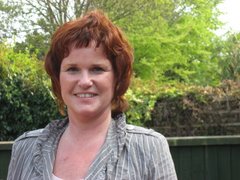This is a Committee week, but slightly unusual in that on Monday morning we have an ‘Extraordinary’ session of plenary to report back on the Prime Ministers’ (Council) meeting last week.
8.30 En route to the Parliament I note, as I often do, how much there is a café culture even first thing in the morning, with many people having their coffee and croissants on their way to work. I start work in the office on a detailed review of Saj Karim’s proposals for amendments to the Kashmir report. I just about get through them and give Carol a check list of queries and suggestions to go through with the Karim office. I will be happy to co-sign most if not all these once the queries sorted. By the time we finish there will be over 60 amendments.
10.00 A special Group meeting, prior to the Extraordinary Plenary. We agree that there have been good things about the 6 months of the Finish Presidency, which is just finishing, even though they have not been big headlines. 86% of Council meetings have been in public, so that is a huge improvement in transparency. However our openness campaign continues: we are now pressing for Member States to make it much clearer how they have transposed European Laws into national ones. Often this is not a simple matter with there being lots of amendments to a range of pre-existing national laws rather than a blanket new law. This is one reason why it is often said the EU has made ‘hundreds’ of laws. Not only would publication of the so-called ‘correlation tables’ make it easier to see what has been done, but it would also expose the extent of ‘gold plating’.
Various issues are agreed upon that Graham Watson will include in his speech in Plenary. In general we are pleased that the doors to EU enlargement remain open. We are dissatisfied with no progress being made on Parliament getting scrutiny of justice issues. These are still all ‘intergovernmental’, that is only ministers decide, with veto possible. In Eurospeak this is the ‘third pillar’. If the Member States agreed, it could be moved to the ‘first pillar’ where decisions involve the Parliament. However, the UK is among the several significant countries that do not want such a move. This means, for example, that the Parliament gets no oversight of the Eurojust agreement with the US, where we fear ‘torture light’ is now the norm. We are pleased to see agreement on setting immigration policy on an EU basis. We also welcome the new ‘comitology’ procedures that mean changes in regulations have to be referred back to Parliament committees. So now the Parliament has more oversight and there will be less ‘doing it alone’ by the Commission.
11.00 Plenary. The Fins summary closely follows our analysis – perhaps not surprising as it is a Liberal Government! Barroso points out that Europe IS doing things that people are interested in – Economy, Energy and Climate, External Policy. The EPP leader Poettering is next on and follows suit. He then uses the second half of his speech to thank all his colleagues on all sides of the house – he is stepping down as EPP leader and expecting to be elected President of the Parliament, so this is a bid for our votes. He is not the only one at it. Monica Frassoni (Green) has been strutting around and talking to anyone who will listen. Shulz, the Socialist leader is next, says much the same as everyone and then endorses Poettering as there has been the usual deal between the two big groups to share the spoils between themselves.
I spot Pervenche Beres, the Socialist chair of the ECON committee in discussion with Ike Van den Burg, the Socialist co-ordinator on ECON, and suspect it may be about oil price compromises. This turns out to be the case and Pervenche approaches me with a new version of the hedge funds section, which I tweak and agree.
Graham’s speech is good and I also like the one by Brian Crowley, leader of the UEN. I am not impressed by Monica Frassoni, so I leave.
12.30 More work on the Kashmir amendments, then a review of all the amendments on private damages actions followed by my amendments on Purchasing Price Parity (PPP), which Carol has typed up. This swallows up the afternoon.
17.00 I talk to a visiting group from Oxford High School, then back to the office and the paperwork.
18.30 The ECON ALDE MEPs have a dinner, with assistants. Carol cries off as she has a bit of a cold. It also turns out to be a bit of a leaving party for Ulrika, assistant to Wolf Klinz.
The blog from Sharon Bowles MEP - updated each fortnight

Blog Archive
-
▼
2006
(27)
-
▼
December
(16)
- Heading home for Christmas
- ECON, Damages and IP
- PPP, VAT and oil prices
- Kashmir and Plenary
- Meetings and shopping
- Office Day
- A narrow victory!
- Sunrise regulations and Belarus
- Arrival in Strasbourg
- 11 – 14 December Plenary Week, Strasbourg
- Guildford FSB
- Patents and Property
- More IP and TV
- Open competition and Intellectual Property
- TV and an MP
- 4-8 December 2006 Group Week
-
▼
December
(16)
About Me
- Sharon Bowles MEP
- I am a Liberal Democrat Member of the European Parliament representing the South East of England.